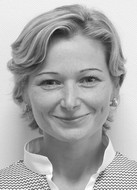Microcycle design within competitive mesocycle in elite dance sport
Фотографии:
ˑ:
PhD, Associate Professor V.A. Aleksandrova1
1Financial University under the Government of the Russian Federation, Moscow
Dancers’ training process may be described as the combination of the relevant design and practical provisions, tools and methods customized to individual traits and geared to attain specific goals within some timeframe/ period. A yearly training process may be broken down into a few season- and progress-specific periods (precompetitive, competitive and transitional ones) driven by the sport form building logics which determines the training process strategy, tactics and technology. A physical training process design shall set forth the following two goals: secure due physical fitness for the specific period; and maintain the physical fitness at reasonable levels over the annual cycle as required by every period. In view of the fact that the competitive periods in the modern dance sport are long enough making up to 7-9 months, the training process design is highly critical for the required physical fitness being maintained. The study offers the elite dancers’ competitive mesocycle design model customizable for annual competitive mission (i.e. tournament schedule within each microcycle) with the special training practices to maintain the elite dancers’ physical qualities at required levels.
Keywords: competitive mesocycle, physical qualities, elite dancers.
References
1. Aleksandrova V.A., Shiyan V.V. Spetsificheskie osobennosti postroeniya makrotsikla vysokokvalifitsirovannykh tantsorov [Specificity of highly skilled dancers' macrocycle]. Izvestiya TulGU. Fizicheskaya kultura. Sport, 2016, no. 3, pp. 88-91.
2. Volkov V.M. K fiziologicheskomu obosnovaniyu postroeniya mikrotsiklov [Physiological substantiation of microcycle design]. Teoriya i praktika fiz. kultury, 1973, no. 5, pp. 57-60.
3. Volkov N.I., Zatsiorskiy V.M. Nekotorye voprosy teorii trenirovochnykh nagruzok [Some issues of theory of training loads]. Teoriya i praktika fiz. kultury, 1964, no. 6, pp. 20-24.
4. Krasnikov A.A., Krasnikov F.F. Obschaya teoriya sportivnykh sorevnovaniy: problemy i opyt ikh resheniya. Dis. dokt. ped. nauk [General theory of sports competitions: problems and experience in their solution. Doct. diss. (Hab.)]. Moscow, 2006, 436 p.
5. Krasnikov A.A. Osnovy teorii sportivnykh sorevnovaniy: progr. Distsipliny vuz. komp. tsikla OPD GOS po napravleniyu
032100 i spetsialnosti 032101: [rek. Ekspert.-metod. sovetom RGUFK] [Fundamentals of sports competition theory: program of discipline of high ed. comp. cycle of GPD SES in major 032100 and specialty 032101 [rec. Expert- method. Council of RSUFE]. RSUPESYT publ., Moscow, 2005, 15 p.
6. Matveyev L.P. O sovremennykh podkhodakh k postroeniyu makrotsiklov trenirovki [Modern approaches to training macrocycle design]. Teoriya i praktika fiz. kultury, 1971, no. 11, pp. 9-14.
7. Matveyev L.P. Problema periodizatsii sportivnoy trenirovki [Problem of periodization of sports training]. SCOLIPC, Physical Education Theory and Practice department. 2nd ed. Moscow: Fizkultura i sport publ., 1965, 244 p.
8. Platonov V.N. Podgotovka kvalifitsirovannykh sportsmenov [Training of skilled athletes]. Moscow: Fizkultura i sport publ., 1986, 284 p.
9. Platonov V.N. Sovremennaya sportivnaya trenirovka [Modern sports training]. Kiev: Zdorovya publ., 1980, 336 p.




 Журнал "THEORY AND PRACTICE
Журнал "THEORY AND PRACTICE